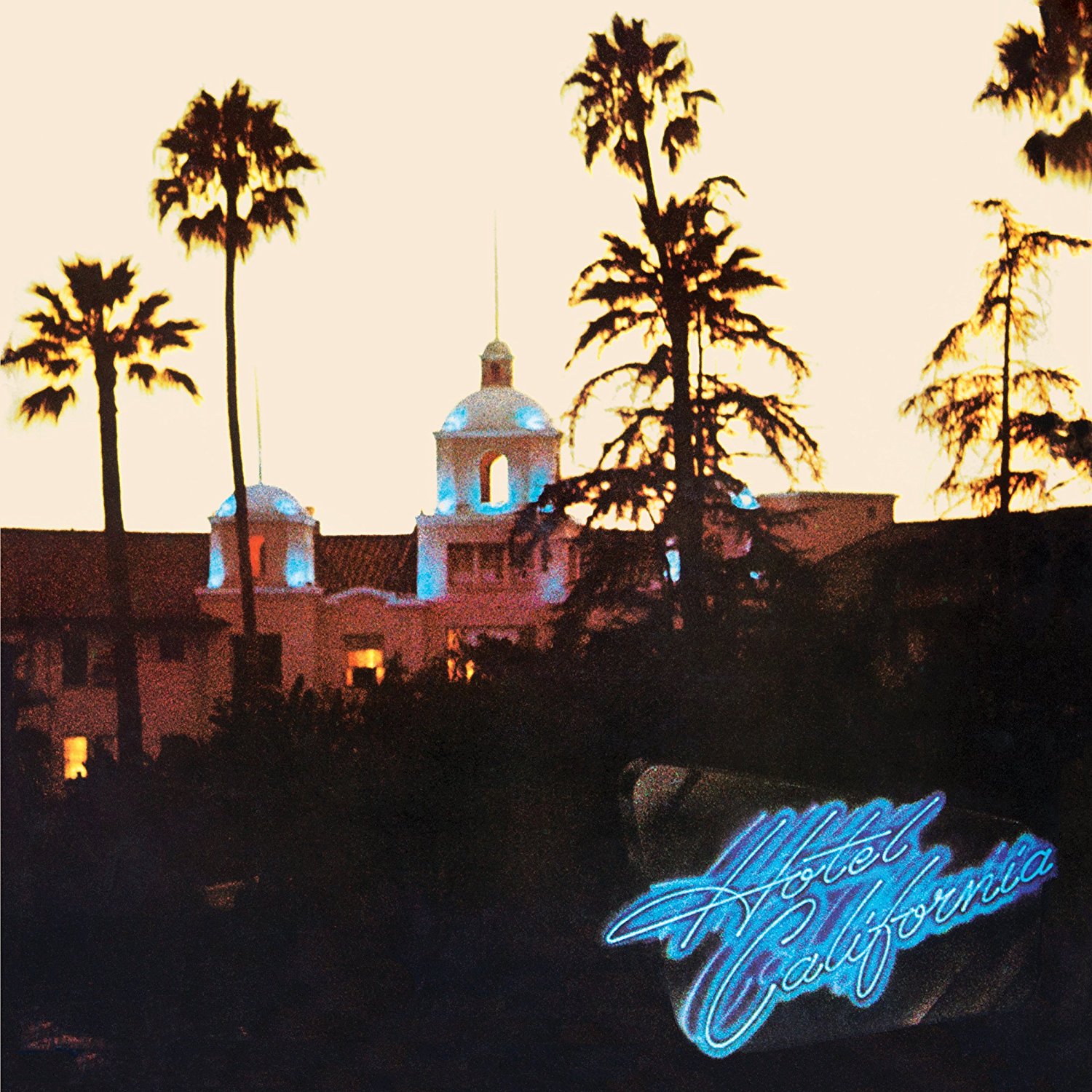 Created almost entirely in the studio—the band had only one song ready when it began on the project—Hotel California was Eagles at their creative and commercial peak. Phrases such as “life in the fast lane” and “you can check out anytime you like but you can never leave” have become part of the American jargon.
Created almost entirely in the studio—the band had only one song ready when it began on the project—Hotel California was Eagles at their creative and commercial peak. Phrases such as “life in the fast lane” and “you can check out anytime you like but you can never leave” have become part of the American jargon.
The album—with worldwide sales of a reported 32 million—was reissued in late 2017, remastered with a bonus 5.1 surround-sound mix and a 1976 concert from the Fabulous Forum featuring the album’s songs before it had even been released. It’s the third best-selling album ever in the States, with more than 26 million.
Hotel California was released on December 8, 1976. It first reached #1 in the U.S. on January 15, 1977.
One part of its lasting appeal is the meticulous production work by Bill Szymczyk, the band’s long-time collaborator with the spellcheck-killing name (it’s pronounced “sim-zik”). The phased final chorus of “Life in the Fast Lane” was Szymczyk’s idea, along with other production work including crafting the Joe Walsh/Don Felder guitar duel in the title track. The 5.1 mix in the deluxe package is from Szymczyk’s long-out-of-print 2001 mix—the original now fetches triple-figures on eBay.
Szymczyk, who has worked with everyone from The Who to B.B. King, spoke to Best Classic Bands from his North Carolina home, offering some insight into the recording process.
Best Classic Bands: When the Grateful Dead’s American Beauty was mixed in 5.1 the band said it wanted it to feel like you were sitting in their midst. Others wanted specific sounds for the songs. Did you have a philosophy going into this 5.1 mix?
Bill Szymczyk: I think it was a bit of both. I wanted to plop the listener right in the middle of everybody, but as each tune came up it would be, “Who in the band do we put where?” Dual acoustic guitars in the back, with vocals and bass up front, with color instruments hither and yon? So it was a combo of both.
What are some specific things to listen for on the surround mix?
The intro [to “Hotel California”], the phased cymbal. I had [Don] Henley hit a cymbal and I put it through a phaser. When we did the stereo he only let me use a little bit of that. When I did the 5.1 nobody else was around, so I used a whole bunch of it and made it fly around the room.
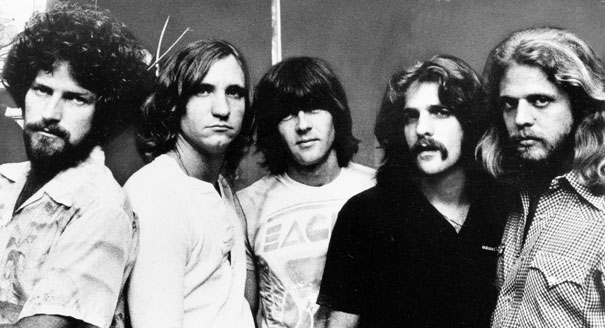
Don Henley, Joe Walsh, Randy Meisner, Glenn Frey and Don Felder in 1977 (Photo: Elektra/Asylum Records)
The guitar solos that end that song cried out for a surround mix.
[Recording] all of those guitars, that was like a three-day endeavor with me, Felder and Walsh. There are at least six tracks with various electric guitars. [In 5.1] I spaced it out so that some of the harmony parts in the verses we stuck in the back. The lead stuff we did left and right in the front.
“Wasted Time” becomes aurally encompassing in 5.1.
That one in particular, there were, like, 22 strings. I think we had them mostly spread out. I put the high violins in the front, the cellos and double basses were in the back. Then we wrapped the violas and violins around that. Ed Norman did the arrangements. He came from Texas with Henley in his first band Shiloh. He ended up doing all our string charts.
Listen to “Wasted Time” from the Forum in Los Angeles from 1976
How many songs were ready when you entered the studio?
There was one (laughs). When I showed up for two weeks of rehearsal the band had rented Ricky Nelson’s house in the hills. I fly out from Miami and everybody gathers. I say, “How many songs you got?” They say, “One, ‘Try and Love Again,’” Randy [Meisner]’s song. They had bits and pieces: “I’ve got this lick.” The whole thing was done in the studio over nine months.
Wasn’t that a ridiculous waste of money, even by ’70s rock-star standards?
At that point, it had become the norm. With On the Border, all the songs were pretty much done. One of These Nights, there were three songs that were done. The rest were made up in the studio. Hotel California, there was one. The Long Run, there wasn’t anything done.
You’d think with all that studio time there would be a ton of alternate takes, but little has come out.
When we would cut a track, a basic track of a song…it was the final track; that’s it, we wouldn’t do anything else [but focus on that track]. As far as outtakes and unheard songs, there was very little, extremely little. It wasn’t until we got to The Long Run, with the initial idea of making a double album, that we cut track after track after track. At one point we had 17 tracks, but none of them had any vocals on them. [The leftovers] are just tracks without lyrics. A couple got finished but we used them somewhere else. One was “Too Much Drama,” that I used on a Mickey Thomas album. “Island of the Hidden Funk” ended up being “River of the Hidden Funk” on a [Joe] Walsh solo album. It became “river” because he actually had written some words by then.
“Random Victims Part 3” turned up on an Eagles boxed set with some studio weirdness.
I had a two-track running pretty much all the time. That’s where that silliness would come from. I lopped together 10 minutes of PG stuff, versus of R or X stuff, for the boxed set.
“Victim of Love” was recorded in one instrumental take, right?
Everything on there except the vocals was done live at the same time, lead guitar and everything. There’s always a lead guitar overdub or extra acoustics or things like that. This would be the only one [that was one take]. We listened and decided that’s pretty fucking good like it is.
The bonus live concert from the Forum—how much was recorded back in the day? Recording shows is dead cheap these days, but back then it meant lots of tape and mobile recording studios.
There’s very little. Do you remember when Howard Cosell had a variety show for about 20 minutes [in 1975]? We did a live bit from Balboa Stadium in San Diego and it went directly to TV. Whatever happened to those tapes, I have no idea. I recorded a concert in Washington, D.C., that’s part of [the documentary] History of the Eagles. That was a benefit for [California Governor] Jerry Brown when he was running for president. Then when we were actually doing the [1981] live album, I did four nights at the Santa Monica Civic and then the Long Night at Wrong Beach.
Watch them perform “Hotel California” in 1977
Why was so little recorded? Live albums made bands’ reputation in the ’70s—The Allman Brothers, The Who, Peter Frampton.
Other people’s live albums sound quite a bit different from the records. That’s not the case with the Eagles. They’d go out of their way to recreate the album cut. They weren’t drastically different.
Related: Meet the man behind the Hotel California album cover
So after all these years do you even like these songs anymore?
Let’s put it this way. I don’t play any of them for my own enjoyment anymore (laughs). I’ll listen to some albums I’ve done. The Eagles are not one of them. When you get 18 months [in the studio recording] The Long Run, you don’t want to hear that anymore. But I love hearing them on the radio, one cut at a time.
Tickets to Eagles’ residency at Sphere in Las Vegas are available through Ticketmaster and StubHub.
Related: Our review of an Eagles’ 2021 concert
- Joe Walsh—’But Seriously, Folks’: Behind the Scenes - 05/16/2025
- A Visit to Stockholm’s ABBA Museum - 04/05/2025
- Joe Walsh Interview: Paying It Back for Veterans - 11/10/2024

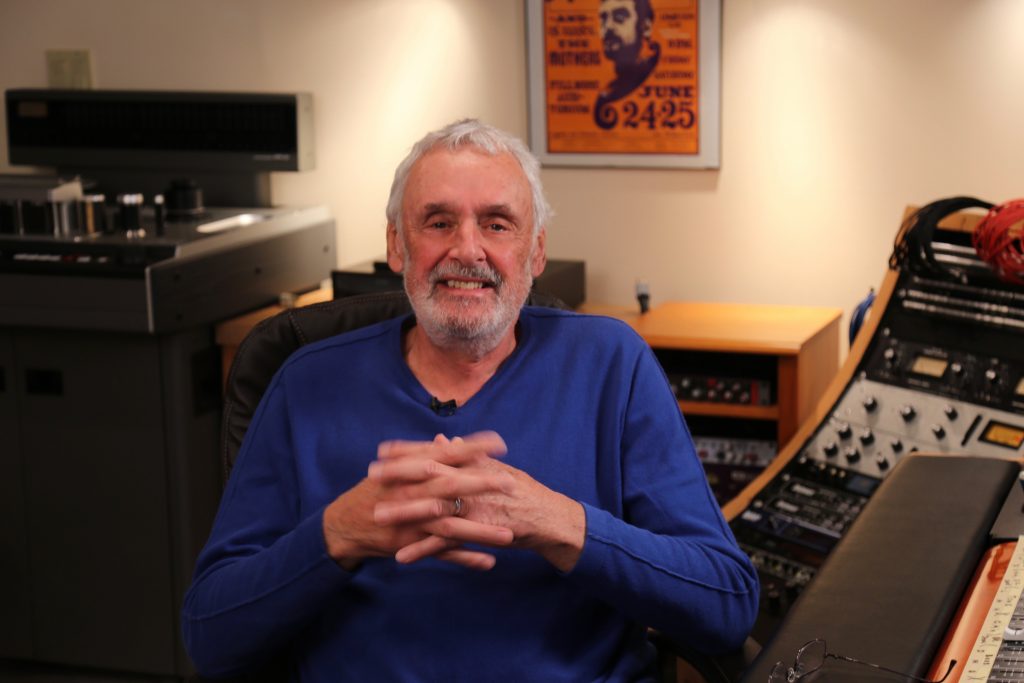
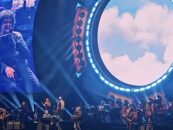
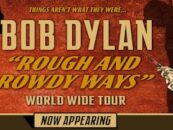
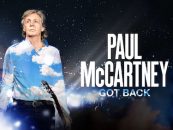
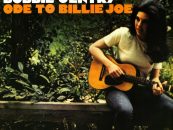

2 Comments so far
Jump into a conversationThe Cosell show he was referring to was called, “Live Saturday Night” or something like that, if I recall correctly. The SNL comedy show people were not happy with that.
And the Eagles were also not happy with how the show was handled.
I”ve also met people with that surname, who call themselves “sim-chick”.
Time for a Hotel California album rewind. While they were recording the album Black Sabbath was in the adjacent studio recording Technical Ecstasy they had to scrape all the cocaine out of the mixing board. Geezer Butler stated it must have been about a pound